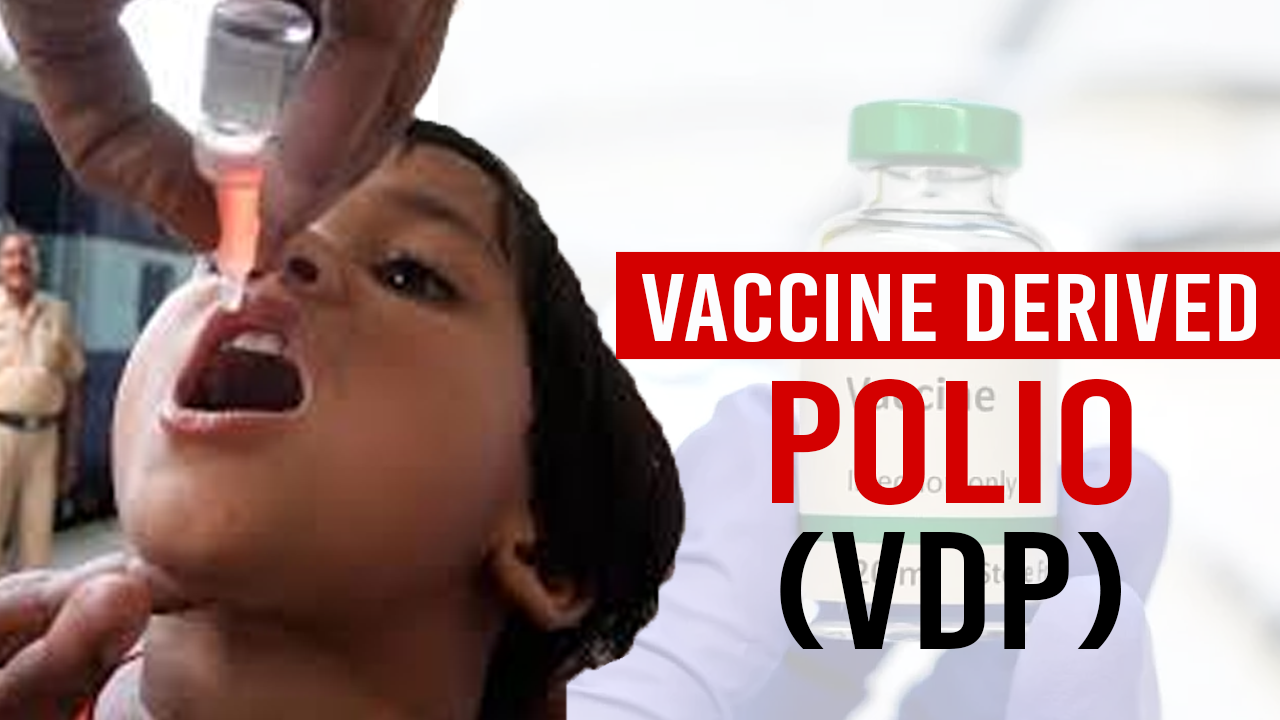Context: Recently, a case of vaccine-derived polio was confirmed in a two-year-old child from Tikrikilla, Meghalaya. Health authorities clarified that this is not wild poliovirus but an infection seen in individuals with low immunity.
Vaccine Derived Polio
- It is an uncommon condition that can happen when the weakened virus in the oral polio vaccine changes and becomes strong enough to cause paralysis again.
- The oral polio vaccine (OPV) contains a live, weakened virus that helps the body build immunity to protect against polio.
- After vaccination, the weakened virus is excreted in the stool. In areas with poor sanitation and low immunisation coverage, this virus can spread to others in the community.
| Polio Virus |
- Polio is a viral infectious disease that can cause irreversible paralysis and even death by affecting the nervous system.
- Transmission: The virus primarily spreads through the faecal-oral route and can multiply in the intestine, where it can invade the nervous system.
- It mainly affects children under five.
- Vaccines:
- Oral Polio Vaccine (OPV): Administered as a birth dose, followed by three primary doses at 6, 10, and 14 weeks, and a booster dose at 16-24 months.
- Injectable Polio Vaccine (IPV): This vaccine is given as an additional dose along with the third DPT (Diphtheria, Pertussis, and Tetanus) vaccine under the Universal Immunization Programme (UIP).
- India was declared polio-free by the World Health Organization (WHO) in 2014, with the last wild poliovirus case reported in 2011.
|
Sharing is caring!


 Pariksha pe Charcha 2025, Overview, Even...
Pariksha pe Charcha 2025, Overview, Even...
 National Policy on Framework on Agricult...
National Policy on Framework on Agricult...
 How Scientists used Scotch tape to Creat...
How Scientists used Scotch tape to Creat...




















